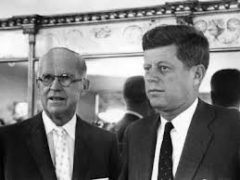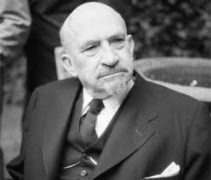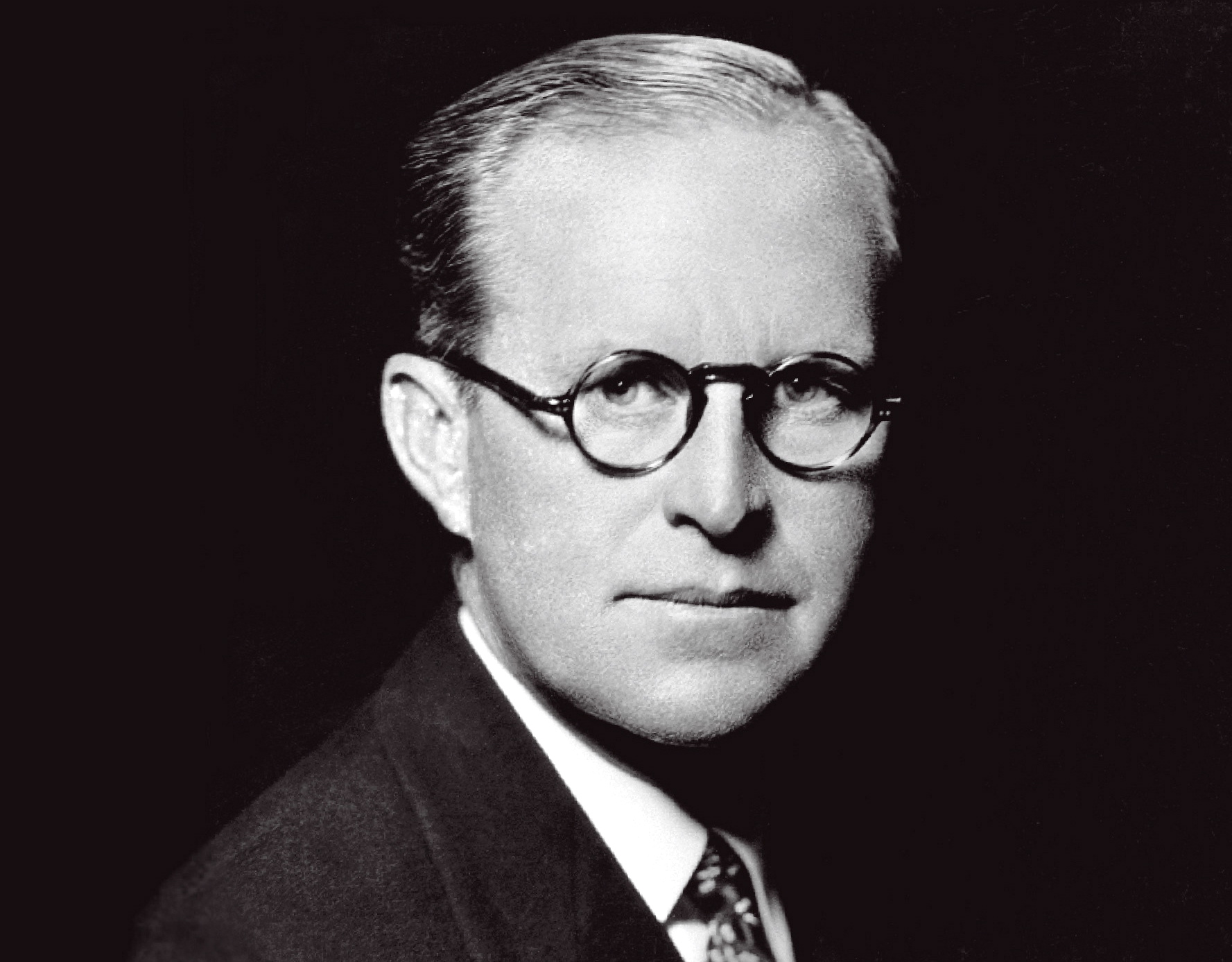Joseph Patrick Kennedy (1888-1969) was the patriarch of one of America’s greatest political dynasties.
Kennedy’s son, John, the first Roman Catholic president, was assassinated 50 years ago on Nov. 22. Robert, John’s attorney general and a U.S. senator, was gunned down in 1968. Edward, who died four years ago, enjoyed a stellar career in the American senate. Caroline Kennedy, the daughter of the slain president, was sworn in as the United States’ ambassador to Japan on Nov. 12.
Joseph Kennedy, an Irish Catholic from Boston, was a person of boundless charm, talents and ambitions who was a multimillionaire by the age of 40. A Wall Street entrepreneur who served as the United States’ ambassador to Britain from 1938 to 1940, he was saddled with an unsavoury reputation as an appeaser, antisemite and Nazi sympathizer.
David Nasaw, a professor of history at City University of New York, scrutinizes the man in The Patriarch: The Remarkable Life and Turbulent Times of Joseph P. Kennedy, published by The Penguin Press.

In this massive biography, based in part on Kennedy’s personal papers, Nasaw examines Kennedy as a banker, businessman, Hollywood mogul, founding chairman of the Securities and Exchange Commission and Franklin Roosevelt’s envoy to Britain as Europe crept closer to war.
Kennedy acquired his moniker as an appeaser during his ambassadorship in London. By 1939, he was of the firm opinion that Britain and its ally, France, could not possibly win a war against Germany and Italy in Europe, or with Japan in Asia.
As he wrote in a memorandum to Roosevelt, “Great Britain and France are no longer able to maintain the old world order. They are on the defensive; the totalitarian states are on the offensive…”
Sharing Charles Lindbergh’s analysis of Germany’s overwhelming military advantages, Kennedy was certain that the German armed forces would sweep through western Europe and invade and conquer Britain, Nasaw writes.
To Kennedy, the only solution was to reach an agreement with the Axis powers before it was too late.
After Kristallnacht in November 1938, Kennedy’s faith in appeasement dimmed. “I am hopeful that something can be worked out,” he wrote to Lindbergh, the first American pilot to fly unaccompanied across the Atlantic Ocean, “but this last drive on the Jews has really made the most ardent hopes for peace very sick at heart … It is more and more difficult for those seeking peaceful solutions to advocate any plan when the papers are filled with such horror. So much is lost when so much could be gained.”
Despite the Nazi pogrom in Germany, Kennedy remained an isolationist and an appeaser, maintaining that the United States should stay out of any European war. In defence of this position, he claimed that Britain and the American Jewish community were “getting together … to get America into this war.”
According to Nasaw, the more he was scorned as an appeaser, the more he blamed Jews: “The Jews opposed him and orchestrated attacks on him, he convinced himself, because he was committed to finding a way to live at peace with Hitler, while they were committed to going to war. That there was no basis for such conclusions did not deter him from voicing … gratuitous and increasingly grotesque antisemitic language.”
Kennedy’s fears that American Jews had become too powerful were misplaced, he adds. “Jewish influence on foreign policy was negligible, its influence on the State Department nonexistent.”
If Kennedy was an antisemite, he was an unusual one. He had Jewish friends, including the U.S. Supreme Court judge Felix Frankfurter and the New York Times‘ columnist Arthur Krock. And he seemed supportive of a Jewish homeland in Palestine.
The first American to pay him a formal visit after his appointment as ambassador to Britain was the eminent rabbi Stephen Wise. So impressed was he by by Kennedy that he wrote a letter to Roosevelt in praise of him. Wise, a Zionist, claimed the Zionist movement could count on Kennedy to pressure Britain, the mandatory power in Palestine, into adopting pro-Zionist policies.
However, Moshe Sharett, the Jewish Agency’s representative in London, had no illusions about Kennedy. After meeting him, he wrote in his diary, “I have no faith in Kennedy’s good will.”
In fact, as Nasaw observes, Kennedy “understood and sympathized with British reluctance to permit unrestricted or expanded (Jewish) immigration to Palestine.”
Kennedy appeared to sympathize with the plight of German Jews and Jewish refugees in Europe, but he thought was that their respective problems could be resolved only through a policy of appeasement at whose core would be a comprehensive accord with Germany.

He advanced this argument, in vain, in conversations with Chaim Weizmann, the president of the World Zionist Organization, and Ze’ev Jabotinsky, the founder of the Zionist Revisionist movement.
Years later, when Kennedy’s son, John, was running for the presidency, a Democratic party worker in Brooklyn described Joseph Kennedy as “the number one bogy” in his son’s campaign.
Nevertheless, the vast majority of Jewish voters cast their ballots for Kennedy, refusing to hold the sins of the father against the son.
suggested
